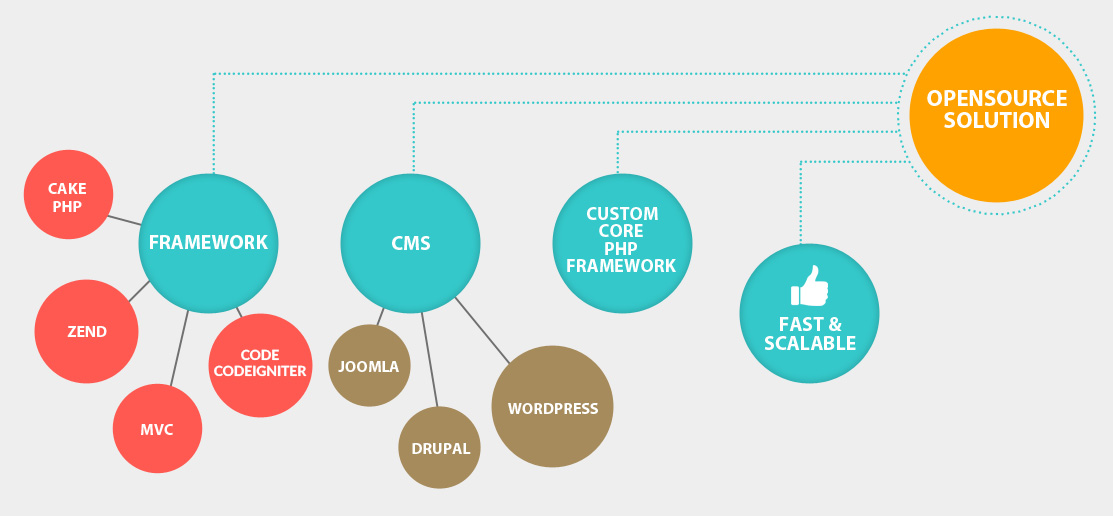The Web is evolving and along with it, the adaptability of the online space. The users are demanding feature-rich and intuitive web application that provides them with delightful user experience. However, these ‘’simple’’ web application are quite complex to develop. Your developers can adapt a few of the up and coming web technologies that can facilitate the development of feature-rich applications.
There are numerous web development frameworks available and it can be a daunting task to pick out the one which perfectly fits your requirements.
I recommend these 5 Web Development Frameworks:
1) CakePHP
CakePHP is an open source web development framework written in PHP. It is a magnification on the idea of model-controller-view and association data mapping. By utilizing CakePHP, professionals can create web applications in an organized and quick manner. CakePHP comes with its own set of documentation and practical guides that simplifies the coding. The developers also have an option of reusing the code for faster development.
Advantage – CakePHP
- Add-ons with Components, Helpers, Behaviors and Plug-ins
- Zero configuration
- Built- in validation
- Ajax support
- CRUD Functionality

2) AngularJS
AngularJS is a JavaScript open-source framework maintained by Google! It is configured for single-page web applications utilizing MVC pattern. Though not full-stack, it is a front-end system that would manage various pages of your website.
The recent version, Angular 4 has taken the developer’s community by storm. The latest version introduces HttpClient – a smaller, easier to use, and more powerful library for making HTTP Request. The version also presents new router life cycle events for Guards and Resolvers – GuardsCheckStart, GuardsCheckEnd, ResolveStart, ResolveEnd join the existing set of life cycle event such as NavigationStart.
Advantage – AngularJS
- Supported by Google and a great development community
- Great MVC
- Supported by IntelliJ IDEA and Visual Studio .NET IDEs
- Extended features such as dependency injection, routing, animations, and view orchestration
3) NodeJS
NodeJS utilizes non-blocking and event-driven I/O vis a vis real-time applications that runs information on the disseminated device. More than a framework, Node.js provides a complete environment. Developers leverage it to create versatile and fast system applications, with high adaptability.
Advantage – NodeJS
- Speed and adaptability
- Faster Data Streaming
- Real-Time Web Applications
- Easy coding
- Enhanced Productivity
4) ASP.NET
ASP.NET is an extraordinary Microsoft-fabricated web development framework. It is favored by designers for making dynamic sites, rich web applications and online interfaces.
.NET is based on the Common Language Runtime (CLR) that gives a chance to web designers to compose ASP.NET code using any language supported by .NET.At present, there are numerous designers who choose ASP.NET as their favored web development platform.
Advantages – ASP.NET
- Secure applications, thanks to the inbuilt Windows authentication system
- Reduced code
- Dynamic web pages
- Easy to deploy
- Cache features
5) ReactJS
ReactJS is an open-source, JavaScript library kept up by Facebook alongside an expansive developers’ group. It is leveraged in creating UI for web applications. This specific framework was designed with a motivation behind building huge applications with data that progress over and over after some time.
Advantage – ReactJS
- js is extremely efficient
- Highly recommended for SEO
- Focus on User Interface
I hope you would be able to make an informed and educated choice after reading this blog!














